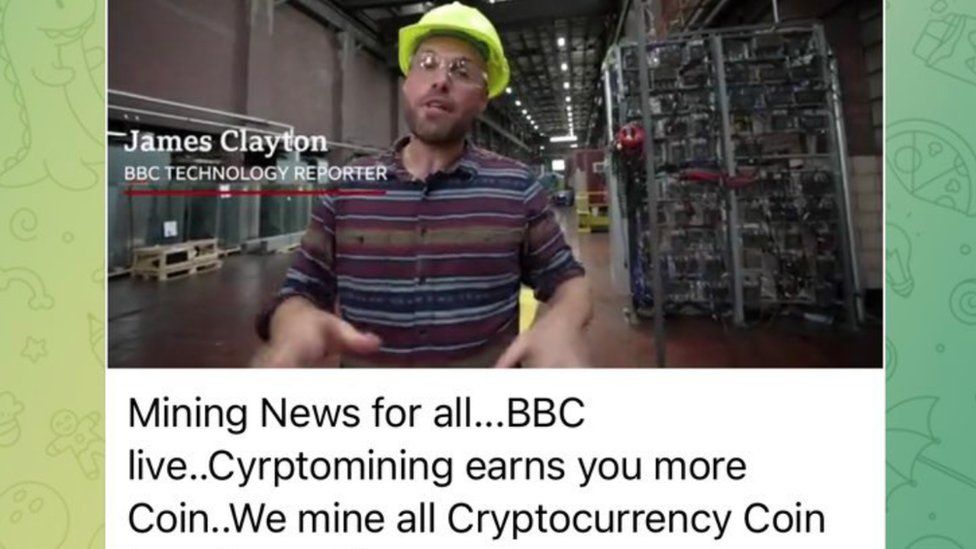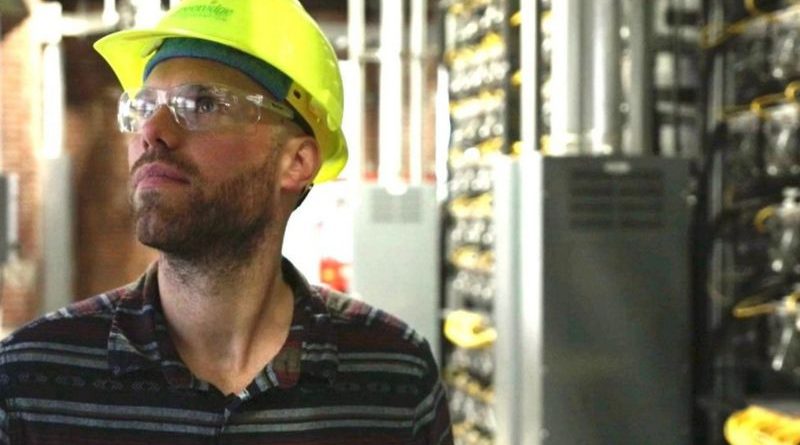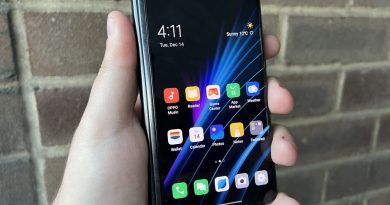BBC Bitcoin mining report used in crypto-scam
Chiranjeevi lives in Hyderabad, India, with his young family.
He is a smiley, glass-half-full kind of guy – naturally positive and full of energy.
He’s smart, too, and works in an Indian tech company.
He’s the least likely person, you’d think, to fall victim to an online scam.
Yet in October he was defrauded out of his life’s savings – $4,000 (£3,000).
He couldn’t believe it.
“I was so stressed. I was just lost. I told my wife and she said, ‘I thought you were intelligent. How did you lose so much money?'”
He messaged me in late October out of the blue, telling me what had happened.
He wasn’t just telling me about the deception, though. He was warning me.
Because central to the scam was a distorted version of my reporting.
Earlier this year I was given access to a Bitcoin mine in New York state. I made a report about it – focused on how mining Bitcoin produces carbon emissions.

However, that is not the report that Chiranjeevi saw.
On 18 October he joined a Telegram channel called B2C Mining.
Telegram is an encrypted messaging service, like WhatsApp, but with “channels”, which can feel more like a Facebook group.
The B2C Mining channel claimed to be part of a company that owned and operated a Bitcoin mine in Russia.
At the top of the group, pinned to the channel, was my report… only it wasn’t quite my report.
It had been altered, cutting out anything to do with climate change, and suggesting that the mine I had reported on was in fact the channel’s.
“I thought it was very genuine,” Chiranjeevi says. “That is what allured me”.
“I thought that you had visited the mining company,” he told me. “I’ve been seeing the BBC since I was a kid, and it has a reputation all over the world.”
There were other videos, too – of happy customers who had made money. People had also posted the gains they had made.
Chiranjeevi was intrigued.
The company claimed to mine crypto-currencies by request – with amazing profits.
“They said they would mine them for 24 hours, and they could make you around 20-to-40%, depending on the type of crypto-coin,” Chiranjeevi said.
The group had nearly 3,000 members. Surely so many people couldn’t be wrong? He decided to give it a whirl.
He began speaking to the channel admin privately – someone who claimed to be the chief executive of B2C Mining – Vadmir Peavsky.
Vadmir Peavsky is not a real person, but we’ll get on to that.
Peavsky told Chiranjeevi that if he were to send him over $160 they would mine a type of crypto-currency for 24 hours.
Twenty-four hours later, his investment was returned with interest. Chiranjeevi had made about $40. He couldn’t believe how simple it was.
“It was easy money,” he says.
Chiranjeevi lives in a flat. He’s comfortable enough. However, he has bigger dreams. He wants to live in a house, and he wants to put his children through university.
Those dreams suddenly seemed attainable. He now had a side hustle, a second income, almost, investing in crypto-mining.
He decided to raise the stakes.
This time he decided to give Peavsky $250 in a crypto-currency called Tron. In five days he was hoping for some hefty returns.
However, as the mining started, Peavsky began to message with bad news. The mining had run into problems. Peavsky needed more money to fix them.
And if Chiranjeevi didn’t pay, he might lose his investment.
“I fell into his trap” he says.
It wasn’t the last request. The problems kept coming. More money was needed to keep the mining going, to save his initial investment. There’s a point in the exchange where you think Chiranjeevi has worked it out




